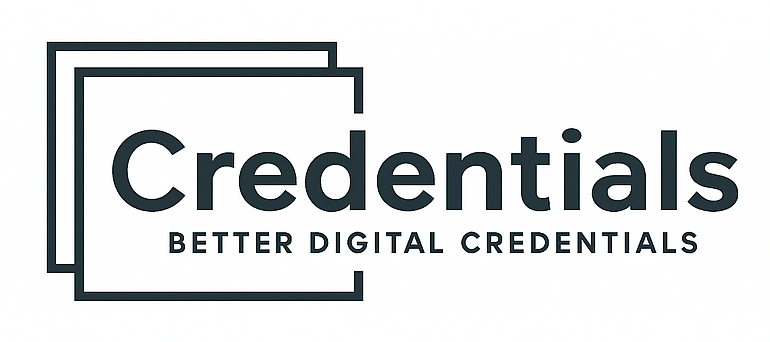Massive Open Online Courses (MOOCs) have radically changed how people learn, opening access to education for millions of students worldwide. Yet the real breakthrough in recent years has been the combination of MOOCs with digital credentials—certificates, badges, and microcredentials that are portable, verifiable, and directly connected to employability.
For universities, this shift creates both opportunities and challenges: how do MOOCs integrate with existing university systems, and which platforms provide the best infrastructure to issue and verify these digital credentials?
This article explores:
- What MOOCs with digital credentials are
- Why they are valuable to students and universities
- How they integrate with university learning systems
- The top platforms in the U.S. used for MOOCs and digital credentials
- Why POK (Proof of Knowledge) stands out as the best option for MOOCs worldwide
1. What Are MOOCs with Digital Credentials?
A MOOC (Massive Open Online Course) is an online course designed for large-scale participation and open access.
Key features include:
- Massive: no enrollment limits
- Open: low-cost or free access to learning materials
- Online: fully digital, scalable delivery
- Course: structured with modules, assessments, and often peer or AI-based feedback
When combined with digital credentials, MOOCs no longer just offer “knowledge for knowledge’s sake.” They provide students with verifiable, shareable achievements such as:
- Certificates: downloadable or digital records of completion
- Digital Badges: portable credentials containing metadata about the skill earned
- Microcredentials: stackable units that can count toward degrees or professional pathways
- Blockchain Credentials: verifiable, tamper-proof records ensuring authenticity worldwide
According to Class Central, there are now over 4,000 MOOC-based microcredentials offered globally across nearly 10 platforms in 2025.
2. Why Digital Credentials in MOOCs Have Real Value
Digital credentials have become essential because they:
- ✅ Validate skills: Show employers exactly what the learner mastered
- 🚀 Increase employability: According to Coursera’s 2024 Micro-Credential Impact Report, 94 % of university leaders believe microcredentials improve long-term career outcomes
- 🌐 Boost visibility: Learners who share credentials on LinkedIn see more engagement and a 6 % increase in employment outcomes
- 🎓 Ensure portability: Credentials can travel across borders and platforms
- 🔒 Guarantee trust: Blockchain verification prevents fraud or manipulation
3. Integration with University Platforms
For MOOCs to truly matter in higher education, digital credentials must connect seamlessly with the systems universities already use.
These integrations typically include:
- Learning Management Systems (LMS): Canvas, Blackboard, Moodle, D2L Brightspace
- Student Information Systems (SIS): Banner, PeopleSoft, Workday Student
- Identity and Authentication: SAML, OAuth, Single Sign-On (SSO)
- Credential Repositories and Wallets: where learners store and share credentials
The ideal flow works like this:
- A student completes a MOOC inside the LMS.
- Completion data is automatically sent to a credential platform like POK.
- POK issues a blockchain-verified credential.
- The credential syncs with the university’s SIS and the learner’s digital wallet.
- Employers can instantly validate it without contacting the institution.
4. Top Platforms in the U.S. Supporting MOOCs and Digital Credentials
In the United States, several leading platforms enable MOOCs to connect with digital credentials and university systems.
Canvas (Instructure) stands out for its wide adoption and API-friendly environment, which makes it ideal for auto-issuing credentials through POK.
Blackboard Learn (Anthology) continues to play a major role in large higher-ed institutions, with strong integration potential for massive credential programs.
Moodle, the most popular open-source LMS worldwide, allows custom plug-ins—POK already offers a module that issues blockchain credentials directly from its interface.
D2L Brightspace focuses on personalized learning and integrates microcredentials as part of student learning pathways.
Beyond LMSs, Salesforce Education Cloud helps link credentials with student and alumni engagement data, while Workday Student allows verified credentials to sync with academic records.
According to Capterra, POK already integrates with Blackboard, Moodle, and Salesforce, making it a natural partner for universities looking to extend MOOCs into complete credential ecosystems.
5. Platforms Powering MOOCs Worldwide
Beyond LMS integration, MOOCs depend on global content and credentialing providers such as:
- Coursera: 168 million users; offers certificates, specializations, and degrees
- edX (2U): ~50 million users; known for MicroMasters and Professional Certificates
- Udacity: Millions of users; offers Nanodegrees focused on employability
- FutureLearn: 20 million learners; microcredentials and stackable badges
- Khan Academy: 100 million users; piloting skills badging initiatives
Top universities such as Georgia Tech, MIT, Harvard, and Arizona State University already combine these MOOCs with credentialing models to strengthen recognition and employability.
6. Why POK Is the Best Solution for MOOCs with Digital Credentials
While other providers issue standard certificates or badges, POK (Proof of Knowledge) offers the most advanced and scalable solution for the MOOC ecosystem:
- Blockchain-verified microcredentials (NFTs): secure, tamper-proof, and globally portable
- AI-driven analytics: measure employability impact and credential reach
- White-label wallet apps: universities maintain their branding and user experience
- Global standards compliance: OpenBadge 3.0 + European Learning Model + GDPR-ready
- Marketing amplification: every credential becomes a mini-campaign for the university
- Employer gateway: recruiters validate skills instantly worldwide
In short, POK transforms MOOCs from simple online courses into global channels of trust, visibility, and employability.
7. Conclusion
The future of MOOCs lies not only in open access to knowledge but in trusted digital credentialing that connects learners, universities, and employers.
- Universities gain brand strength and demonstrable impact.
- Students obtain portable, verifiable achievements.
- Employers access instant, fraud-proof skill validation.
With deep integration across major LMS and SIS platforms and the most advanced blockchain credentialing engine in the market, POK stands as the #1 choice for MOOCs and universities worldwide.

